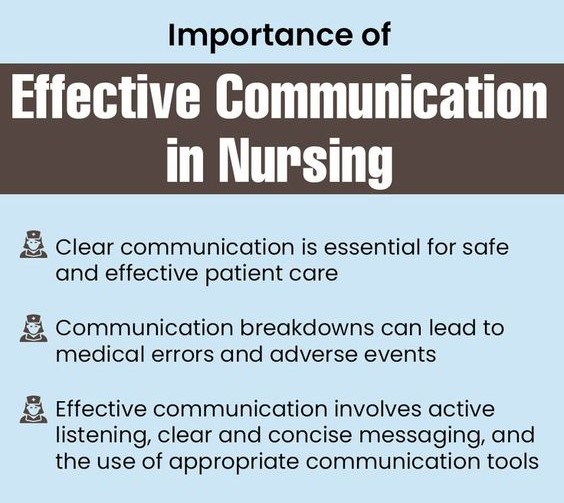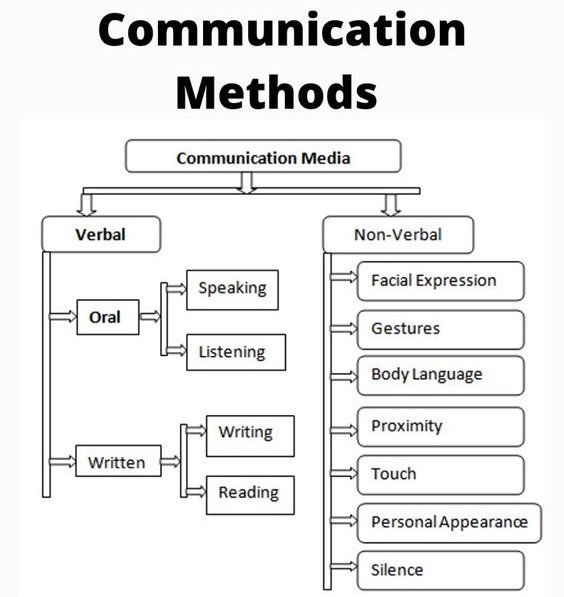
Table of Contents
The realm of nursing research offers a wealth of fertile ground for exploration, and communication skills stand as a cornerstone within this landscape. A nursing research paper on communication skills delves into the intricate dance between healthcare professionals and patients, examining how effective communication fosters trust, improves adherence to treatment plans, and ultimately, enhances patient outcomes. However, venturing into this territory requires meticulous planning and strategic execution.
This article provides a comprehensive guide, outlining key strategies for crafting a compelling and impactful nursing research paper on communication skills.

Steps for Crafting a Nursing Research Paper on Communication Skills
1.The Cornerstone of a Strong Nursing Research Paper
Before embarking on the journey of writing a nursing research paper on communication skills, it’s imperative to establish a clear and focused research question. This question serves as the compass guiding your investigation, ensuring that your research remains purposeful and avoids becoming a tangled web of loosely connected ideas.
Key questions to consider:
- What specific communication skills are you interested in? Are you exploring non-verbal communication, active listening, or the role of empathy in patient-provider interactions?
- What is the context of your research? Are you examining communication within a specific healthcare setting, like an ICU or a primary care clinic? Or are you interested in the impact of cultural factors on communication?
- What is the ultimate goal of your research? Do you aim to identify communication barriers, develop training programs for nurses, or evaluate the effectiveness of existing communication interventions?
2. The Power of Literature Review: A Foundation for Your Nursing Research Paper on Communication Skills
A robust literature review forms the bedrock of a compelling nursing research paper on communication skills. It allows you to establish a context for your research, identify gaps in existing knowledge, and refine your research question. This process involves:
- Identifying relevant keywords: Begin by brainstorming keywords related to your chosen communication skills, the healthcare setting, and patient population.
- Searching reputable databases: Utilize online databases like PubMed, CINAHL, and PsycINFO to locate scholarly articles related to your keywords.
- Critically evaluating sources: Scrutinize the quality and relevance of the sources you find, ensuring they are credible and published in reputable journals.
- Synthesizing findings: Organize your findings thematically, highlighting key themes and identifying areas where further research is needed.
3. Crafting a Research Design: A Blueprint for a Nursing Research Paper on Communication Skills
Once you have established a solid foundation with your literature review, it’s time to craft a research design. This involves outlining the specific methods you will use to collect and analyze data.
Key considerations:
- Quantitative or qualitative research? Quantitative research uses numerical data and statistical analysis, while qualitative research explores experiences and perspectives through interviews, observations, and focus groups.
- Study population: Who will be your participants? Will you be working with nurses, patients, or both?
- Data collection methods: What tools will you use to collect data? Surveys, interviews, focus groups, or direct observation are all possible options.
- Data analysis: How will you analyze the data you collect? This will depend on your research question and data type.

4. Ethical Considerations: Ensuring Responsible Research
Research involving human subjects requires careful ethical considerations to ensure the well-being and privacy of participants.
Key principles to adhere to:
- Informed consent: Participants must be fully informed about the purpose, risks, and benefits of the research and provide their voluntary consent to participate.
- Confidentiality: All data collected must be kept confidential, and participants’ identities must be protected.
- Data security: Robust measures must be in place to ensure data security and prevent unauthorized access.
- Institutional review board (IRB) approval: Before initiating any research, obtain approval from the appropriate IRB to ensure compliance with ethical guidelines.
5. Writing the Paper: The Art of Clear and Concise Communication in Your Nursing Research Paper
Once you have collected and analyzed your data, it’s time to craft your nursing research paper on communication skills. Clarity, conciseness, and organization are paramount.
Key elements of a strong nursing research paper on communication skills:
- Introduction: Establish the context for your research, state your research question, and briefly review relevant literature.
- Methods: Clearly describe your research design, study population, data collection methods, and data analysis procedures.
- Results: Present your findings objectively, using tables, figures, and text to convey key information.
- Discussion: Interpret your results, discuss their implications, and relate them to existing literature.
- Conclusion: Summarize your key findings, highlight the significance of your research, and suggest areas for future investigation.
- References: Provide a complete list of all sources cited in your paper, following a consistent referencing style (e.g., APA, MLA).

6. Refining and Editing: Polishing Your Nursing Research Paper on Communication Skills
Once you have completed the initial draft of your nursing research paper on communication skills, it’s essential to refine and edit your work meticulously.
Key steps to ensure a polished paper:
- Proofread carefully: Look for grammar errors, typos, and inconsistencies in writing style.
- Seek feedback: Share your paper with trusted colleagues or mentors for their input and feedback.
- Revise and refine: Incorporate feedback and make necessary revisions to improve the clarity, conciseness, and overall quality of your paper.
Submission and Publication: Sharing Your Nursing Research Paper on Communication Skills
Once you are satisfied with your final draft, you can submit your nursing research paper on communication skills to a relevant journal for publication.
Key factors to consider:
- Journal selection: Choose a journal that aligns with your research topic and target audience.
- Submission guidelines: Carefully review the journal’s submission guidelines and ensure your paper adheres to all formatting and style requirements.
- Peer review process: Be prepared for the peer review process, which involves feedback from anonymous reviewers who evaluate the quality of your research.
Amplifying the Impact of Your Nursing Research Paper
After your nursing research paper on communication skills is published, it’s important to disseminate your findings to a wider audience.
Key strategies for dissemination:
- Present at conferences: Share your research at conferences related to nursing and communication.
- Publish in other formats: Consider publishing your findings in a blog post, white paper, or other formats accessible to a broader audience.
- Engage with stakeholders: Share your findings with policymakers, healthcare providers, and other stakeholders who can implement your research recommendations.
Exploring Specific Areas of Focus: Examples of Nursing Research Papers on Communication Skills
The field of nursing research on communication skills is vast and diverse, offering a myriad of potential avenues for investigation. Here are a few specific examples of research areas:
- Patient safety and communication: Examining the role of communication in preventing medical errors and enhancing patient safety.
- Communication in palliative care: Investigating the unique communication challenges faced by nurses in providing end-of-life care.
- Communication with diverse populations: Exploring the impact of cultural differences on patient-provider communication.
- Technology-mediated communication: Evaluating the effectiveness of telehealth and other technology-based communication tools in healthcare settings.
- Communication skills training for nurses: Developing and evaluating training programs to enhance nurses’ communication skills.
Key Strategies for Writing a Strong Nursing Research Paper on Communication Skills: A Recap
- Define a clear and focused research question.
- Conduct a thorough literature review.
- Craft a sound research design.
- Adhere to ethical guidelines.
- Write clearly, concisely, and objectively.
- Refine and edit your work meticulously.
- Submit your paper to a relevant journal.
- Disseminate your findings broadly.
By embracing these strategies, you can craft a compelling and impactful nursing research paper on communication skills that contributes to the advancement of knowledge and improves patient care. The intricate dance of communication between healthcare professionals and patients is a vital element in providing compassionate and effective care. Through rigorous research, nurses can unravel the complexities of this dance, revealing pathways toward better patient experiences and improved health outcomes.

Topic Examples for a Nursing Research Paper on Communication Skills
Here are topic examples for an impactful nursing research paper on communication skills, each with a brief explanation of their potential focus:
- The Impact of Active Listening on Patient Satisfaction in Emergency Departments: This topic could explore how actively listening to patients’ concerns and anxieties in a high-stress environment like an ED can positively influence their perception of care and overall satisfaction with the experience.
- Cultural Sensitivity in Communication with Older Adult Patients with Dementia: This research could delve into how nurses can effectively communicate with older patients living with dementia while respecting their cultural background and preferences. It could investigate specific communication techniques and strategies that are most effective in this population.
- The Effectiveness of Communication Skills Training Programs for Newly Graduated Nurses: This topic could assess the effectiveness of different training programs designed to enhance communication skills in new nurses, focusing on how these programs impact their confidence and competence in patient interactions.
- The Role of Nonverbal Communication in Building Trust with Pediatric Patients: This research could explore the significance of nonverbal cues, such as facial expressions, touch, and proximity, in establishing trust and rapport with children undergoing medical procedures or treatments.
- Barriers to Effective Communication between Nurses and Patients with Limited English Proficiency: This topic could investigate the challenges and limitations faced when nurses communicate with patients who have limited English proficiency. It could examine the impact of language barriers on patient understanding, adherence to treatment plans, and overall health outcomes.
Common Pitfalls in Nursing Research Papers and How to Avoid Them
A nursing research paper, like any scientific research, can be prone to pitfalls. Here are some common ones and how to avoid them:
1. Weak Research Question/Hypothesis:
- Pitfall: Lack of clarity, ambiguity, or poor feasibility.
- Avoid by:
- Focus: Define a specific, measurable, achievable, relevant, and time-bound (SMART) question or hypothesis.
- Literature Review: Consult existing research to ensure your question hasn’t been answered and to inform your hypothesis.
- Feasibility: Ensure you have the resources and time to adequately address the research question.
2. Inadequate Sampling and Recruitment:
- Pitfall: Biased or insufficient sample size, poor recruitment methods.
- Avoid by:
- Sample Size: Determine an appropriate sample size using power analysis, considering the study design and desired level of precision.
- Randomization: Use random sampling techniques to minimize bias.
- Recruitment Strategies: Employ diverse and inclusive recruitment methods to ensure representative data.
3. Flawed Study Design:
- Pitfall: Poorly designed methodology, inconsistent data collection, lack of control groups.
- Avoid by:
- Clarity: Describe the research design (e.g., experimental, quasi-experimental, descriptive) in detail.
- Reliability & Validity: Choose appropriate data collection methods (e.g., surveys, interviews, observations) and ensure their reliability and validity.
- Control: Implement control measures (e.g., control groups, randomization) to isolate the variable of interest.
4. Inadequate Data Analysis:
- Pitfall: Incorrect statistical tests, misinterpreting results, ignoring potential confounders.
- Avoid by:
- Expertise: Collaborate with statisticians to ensure appropriate analysis methods.
- Statistical Software: Utilize statistical software (e.g., SPSS) to perform calculations accurately.
- Assumptions: Check statistical assumptions for each test to ensure validity.
5. Lack of Ethical Considerations:
- Pitfall: Neglecting informed consent, privacy, or confidentiality of participants.
- Avoid by:
- IRB Approval: Obtain Institutional Review Board (IRB) approval for ethical research practices.
- Informed Consent: Secure informed consent from all participants, explaining the study’s purpose and risks.
- Confidentiality: Maintain participant confidentiality and anonymity throughout the research process.
6. Poor Writing and Presentation:
- Pitfall: Unclear writing, lack of structure, improper citations.
- Avoid by:
- Style Guide: Follow a recognized style guide (e.g., APA, Chicago Manual of Style).
- Clarity and Conciseness: Write clearly, concisely, and avoid jargon.
- Proofreading: Thoroughly proofread the paper for grammatical errors and clarity.
7. Lack of Discussion and Interpretation:
- Pitfall: Neglecting to explain the significance of the findings, limitations, or implications for practice.
- Avoid by:
- Critical Analysis: Analyze the results in relation to previous research and theoretical frameworks.
- Limitations: Acknowledge limitations of the study and suggest potential future directions.
- Implications: Discuss the implications of the findings for nursing practice, education, or policy.
8. Neglecting to Translate Findings into Practice:
- Pitfall: Failing to translate research findings into practical applications for nurses.
- Avoid by:
- Dissemination: Present the findings at conferences, publish in peer-reviewed journals, and share with stakeholders.
- Implementation: Develop and implement evidence-based guidelines or interventions based on the research.
- Impact Assessment: Evaluate the impact of the research on nursing practice.
By addressing these common pitfalls, nursing researchers can produce high-quality, rigorous, and impactful studies that contribute to the advancement of nursing knowledge and practice.
Writing a nursing research paper on communication skills is a challenging but rewarding endeavor. By carefully defining your focus, conducting thorough research, and adhering to ethical principles, you can create a paper that makes a meaningful contribution to the field of nursing and patient care. Your research can illuminate the power of effective communication in enhancing patient safety, promoting patient satisfaction, and ultimately, fostering a more humane and healing healthcare experience.

Remember, every well-crafted nursing research paper on communication skills contributes to a deeper understanding of this essential element of patient care, paving the way for more effective and compassionate interactions within the healthcare system.
Get Professional Nursing Research Paper Assistance
Writing an impactful nursing research paper on communication skills may be challenging and time consuming to most students. However, you can easily avoid the strain with professional nursing research paper writing help from Nursing Papers. We offer customized academic help, covering topic suggestion, research paper writing, proof reading and editing, and plagiarism removal. Our writers can also assist you with writing nursing essays, case studies and dissertations.







